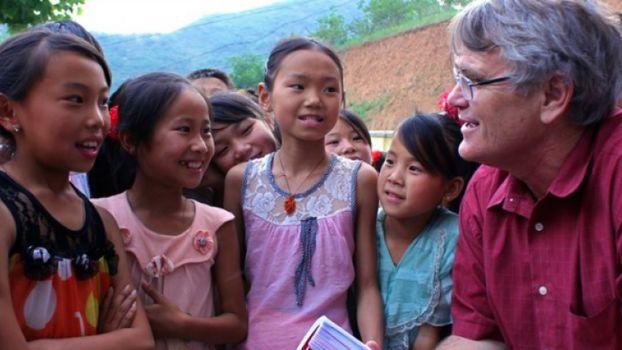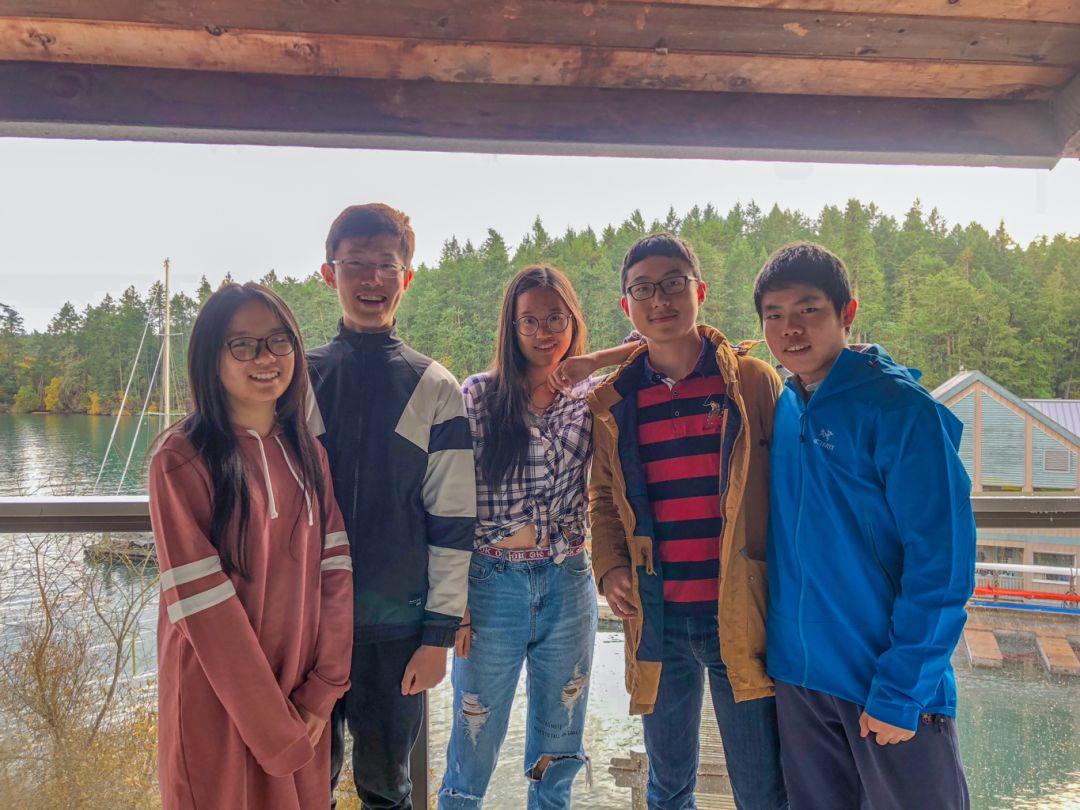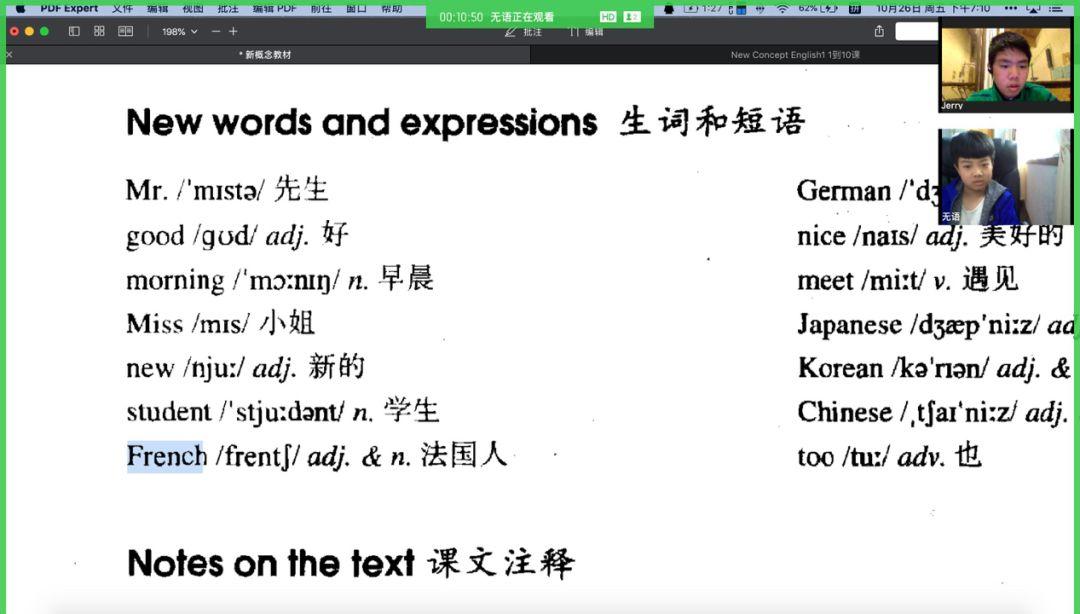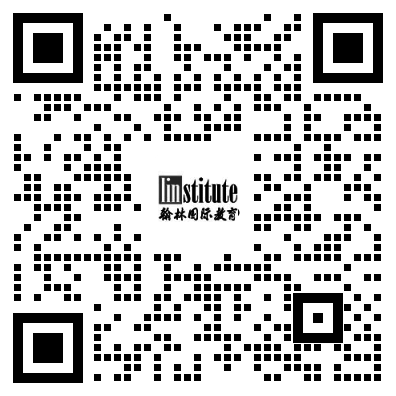- 翰林提供学术活动、国际课程、科研项目一站式留学背景提升服务!
- 400 888 0080
May The Distance Matter No More | My Online Teaching Experience
I began to study at UWC Changshu China in August 2017. During the year I spent as a Pre-DP student, I gained a lot of valuable experience. My passion for online teaching projects is immense, and they are without adoubt what I have always persevered in. Online teaching projects have taught me many things. I learned how to approach issues from other’s perspectives, how to pursue personal breakthroughs and how to be loving and considerate.
Starting Point
Soon after the school year started, I became a member of the ‘PVO Online Teaching Program’ Zhi Xing. Wesley, a board member of UWC Changshu China, assisted with the founding of this Program which aims at providing children in rural areas with continuous educational and emotional support.
As a pianist with knowledge of music theory, I was assigned to music classes for the primary school students in Nantai Village, Guangxi Province. Eager to do a good job, I found myself always contemplatingduring lunch breaks which piece to play to those kids for the week. The kids loved every song I picked for them because they had not had a lot of opportunities to be exposed to these music. It gave me great pleasure to see the curious eyes of those fascinated kids. I realized it was for moments like this that I devote my effort to learning music. I can provide beginning level music education to these kids, utilizing the knowledge I have learned. This experience made me think more. These kids do not get to choose where they were born; they sit behind tatty desks; and they are so happy to receive even the slightest sign of care and warmth from us. Meanwhile, my classmates and I are receiving high-standard IB education on this well-equipped campus. I cannot help but ask the question: Can we possibly do more to help?
Students taking an online class
The education principle of United World Colleges holds that every child has the inalienable right to receive education, but the reality is far different from our vision. Compared to kids born in the rural areas, children from the city have much greater access to educational resources just because they were born in the city. Through online lessons and a week’s voluntary support at a junior high school in Jiangxi Province during the Project Week last year, I realized that the disparity is severe and widespread. I have been taking piano lessons before entering elementary school and learned English from an American teacher, not mentioning the English and music classes offered by my primary school; these kids however, have had basically no music lessons, and their English education did not start till grade four or five.
As for other parts of China, the research outcome of the Project by Stanford University Professor, Scott Rozelle, sheds some valuable light. He and his group had studied the university entrance exam score of 60 million students in 2009 and reached the conclusion that: "When comparing students who were born in cities to those who were born in poverty or rural areas, the former has 45 times more chance to get into first tier universities like Tsinghua University or Peking University". He continued by saying that "the former has 8 times more chance to get into 4 year degree offering universities than the latter; while looking at the opportunity of getting into ordinary institutions of higher learning, the former group still has 7 times more chance.”

Professor Scott Rozelle with rural Chinese students (From website of Stanford)
Another set of data indicates that: among all the school age children, those who live in rural areas account for 45% to 50%, and more than 80 million children are between age 6 to 15. These kids will be the major workforce in the future. The education they receive today will have a direct impact on the quality of China’s supply of workforce, shaping the future development of China’s economy. (“What type of high school education does China need? – Interview of the ‘Friendship Prize’ winner: Professor Scott Rozelle of Stanford University”, Chinese Education Paper, 22 Apr. 2014)
Because of the different levels ofeconomic development,education resources are extremely imbalanced in the urban and rural areas. The improvement of education for school age children in the rural areas should be the priority since it is closely related to the future development of China. Issues such as this would have only led to a fleeting thought in my mind before entering UWC. However, UWC education has taught me it is time to take action and make positive changes.
Team Building
My first year at UWC Changshu China went by quickly, and I would transfer to Pearson College for the next two years to continue my UWC experience. This transition meant that a lot of interesting adventures are awaiting ahead, but unfortunately, it also meant that my involvement in the PVO Online Teaching program had to come to an end. This made me wonder if I would still be able to do online teaching for those children in need. Instead of music classes, I felt that teaching English is a great choice as it is much more useful to the kids in rural areas since English is a mandatory test subject for entering senior high schools. Where they go for senior high school will prepare them for the university education, thus impacting their future career. I wondered where to find such an online teaching project and also who wouldbecome my partner.
One day during lunch time at the end of July, I ran across an article in the old PVO group chat about a program called Sanguo Online Teaching recommended by Wesley. I was so excited chatting with Wesley that I barely had my lunch. Soon, Wesley gave me the contact information of Selina, the teacher responsible for the Project. From her I learned this is a program that teaches English to primary school students in rural areas.

At that time, no North American volunteers had signed up yet. After careful consideration, I told Selina that I would form a group and also be responsible for the coordination of volunteer work for the North America region. The first task was to find people who would be willing to join. I immediately thought of my co-years who were transferring to Pearson and other friends who were going to UWC-USA. Even though I am not a very social person, my passion for the project drove me to interact with my peers who might be interested in the Project and I sent out messages to them. Soon, I received positive replies from most of them. With more confidence, I began sending "recruitment request" to other friends, and several more from other American high schools joined in.
By mid-August, North America group members for Sanguo Online Teaching has been confirmed. I created an Online Teaching Guideline based on my experience from the past, and also a survey and forms to learn more about each volunteer and find out their available teaching times. Due to the time difference, I found out that the possible teaching hours were quite limited. Eventually, I figured out a set of reasonable timetable for all volunteers across four time zones. This schedule is not yet perfect. Some students have to work right after they finish the lesson, and some in America will not be done with their tutoring till after ten at night. For that, I amreally grateful to all the volunteers for their dedication to the Project.

Pearson College UWC Sanguo Online Teaching Group Members (author,right)
Distance Matters No More
At the end of August, school year started for the volunteers in North America. Extracurricular activities in North American high schools are numerous, even more so at the UWCs. Every one of us began to feel a bit overwhelmed. I had to deal with the IB program while trying my best to get used to the new environment at Pearson. Meanwhile, I reminded every volunteer to leave the online teaching period available while adjusting the schedule according to their actual availability.In September, the primary school we are working with began their school year as well, so I had to contact Sanguo much more frequently in order not to lose track. For a while, every morning I had hundreds of unread messages to go through.
In order to coordinate the timetable among the volunteers and the primary school students, I almost had to have a time difference calculator in my head. I became very good at telling the corresponding time in China to the different time zones in North America. Handling these seemingly trivial matters enabled me to pay more attention to details. I had to be calm and make use of tools and software to help me sort out these information and act promptly; otherwise, I wouldn’t have been able to fix problems on time. I had to take care of my academic performance as well. These challenges actually made me become more efficient in my work.
The online classes started with “New Concept English One”, which was an accessible and popular textbook. For the convenience of the kids and their parents, we chose to run classes through QQ video calls. Before the lesson started, we all assumed that parents and their children knew how to use phones and computers. The reality however, was a bit disappointing. Some students, although having computers, had never used them before,while some others only had their grandparents at home to help when needed. So we had to give remote instructions on how to properly and effectively use the devices. We could notice the nervousness on the faces of students on the other side of the screen. Fortunately, with everyone’s hard work we were able to fix major problems. After a month’s preparation, our North America group finally started the first lesson on October 12th!
At 7:00pmVictoria time, Beijing time 10:00am, my student Cui appeared on the screen right on time, with his parents sitting behind him. Thousands of miles away from each other, we were connected and the class started. Cui had some foundation in English and could read some paragraphs of “New Concept English One”. However, his pronunciation seemed a bit weird. For instance, he pronounced “th” like an “s”. After numerous practices, the result still wasn’t satisfying. As the saying goes, “Practice makes perfect”, I thought to myself that the only solution to this is to be patient and keep practicing. The homework he handed in was very neat, and I gave him advice to make his ‘a’ less like ‘d’. He was hardworking, always putting in his best effort in whatever he was doing. I was delighted that Cui’s parents accompanied him throughout, even though they couldn’t understand one bit of English. They always came to help right away if the internet went wrong or the video got stuck. With the support of his parents, Cui kept on working hard. He was a lucky boy in his village to have his parents on his side. Through reading out loud, doing exercises and explaining grammar, I tried my best to teach in a way he could understand. Though it seemed that not muchl was covered, the one-hour period was still too short. At the end of every class, Cui would say, "See you, Teacher!" waving his hand at me, and I would encourage him and say, “Great job! Keep it up! See you next week!" as I shut down the software and took off the earphones, which marked the successful conclusion of the class.My phone would vibrate at this time, showing messages from the group chat, as other volunteers at Pearson or in America also ended their lessons smoothly. Coming out of the MaxBell building, I saw the moon shining in the sky and felt refreshed by the autumn wind. I also felt the dryness in my throat, but the steps under my feet were brisk.

New Concept English class (Author and Cui, top right)
It is the first step that is troublesome. I strongly believe that the Project will run more and more smoothly. If I have the opportunity, I would like to show Cui the marine science lab and the beautiful campus I’m living in and introduce him to my friends from across the world. The world is big indeed; but at the same time, it’s also small. Thanks to internet, we can connect and talk face to face even though we are so far away from each other. Everyone in the group is looking forward to seeing many kids like Cui from rural China gaining knowledge through the Project and having a glance at how colorful the world is. Education is the very best key to lead us all towards a bright future.
Today, the ninth lesson went through successfully! Our Project is going to continue and will become better and better. We are ready to do our best to ignite the hope of these children and their parents! We should cherish the opportunity we have and contribute more to narrowing the gap in education between urban and rural areas
在线登记
最新发布
© 2025. All Rights Reserved. 沪ICP备2023009024号-1









